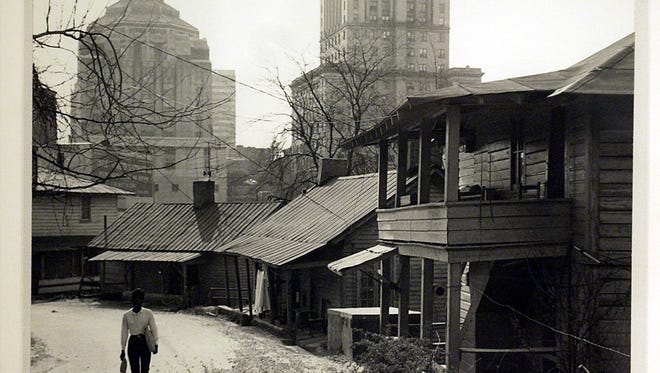
ASHEVILLE – Creating a truth and reconciliation task force to deal with enslavement, forced railroad work, the war on drugs’ disparate racial effects and other historic harms to local Black residents will be one of the last jobs of the city and county’s inaugural Community Reparations Commission, which has now received an extension to complete its work by early 2025.
Leaders of the ground-breaking commission representing one of the only government reparations initiatives in the country for Black residents said they had struggled with the heavy historical burden and repeated changes in staff supplied by the city and Buncombe County.
“All the trauma, all the harm all the perpetuation of that on Black people, the disenfranchisement, it didn’t happen in two years,” CRC Chair Dewanna Little told the council at a May 27 meeting.
Because city staff had already agreed that more time was necessary, City Manager Debra Campbell said no vote was needed and the CRC’s two-year term would run another six months, finishing in January 2025. That will come with continued government support that has included stipends for members of up to $150 a month for two or more meetings. The Citizen Times reached out Aug. 28 to the city for the cost of other support.
Council members offered praise for the commission’s work, noting the difficulty for volunteers to undertake the unprecedented initiative.
“I continue to just feel in awe of the task that you all signed up for, and the enormity of what it means,” said Council member Maggie Ullman.
Vice Mayor Sandra Kilgore, one of the council’s three Black members, urged the CRC to get to a point where the local governments could start taking concrete actions, saying many in the community were asking about progress.
“We can still make amendments and changes as we go, but we would like to try to really get it up and moving after the first of the year so people can start seeing, you know, the differences that we can make in the community,” Kilgore said.
Little said the half year would let the CRC finish the extensive work “to the best of our abilities.”
In a surprise move, the council voted unanimously in 2020 to start a reparations process. The county’s Board of Commissioners also approved the plan.
The commission has already voted to put forward 39 recommendations, including guaranteed income, the creation of an economic development center and paying for existing initiatives in historically Black neighborhoods.
In the next six months it will look to form a nonprofit organization that can receive private and government money, create a Black Chamber of Commerce and an accountability council. It will also set up a truth and reconciliation task force, with the job of addressing damage done to Black residents not addressed by the CRC.
That area is vast and will require assistance of professionals in history, economics, genealogy, business and more, commission members said. They will delve into areas of direct oppression, such as Jim Crow segregation laws, as well as actions that cause indirect harm, such as gentrification − “from enslavement through the contemporary era,” the CRC said in its description of the task force.
More:At its final meeting, the Asheville reparations commission says: We need more time
Asheville, Buncombe reparations commission Chair Dwight Mullen steps down from role
Joel Burgess has lived in WNC for more than 20 years, covering politics, government and other news. He’s written award-winning stories on topics ranging from gerrymandering to police use of force. Got a tip? Contact Burgess at jburgess@citizentimes.com, 828-713-1095 or on Twitter @AVLreporter. Please help support this type of journalism with a subscription to the Citizen Times.

